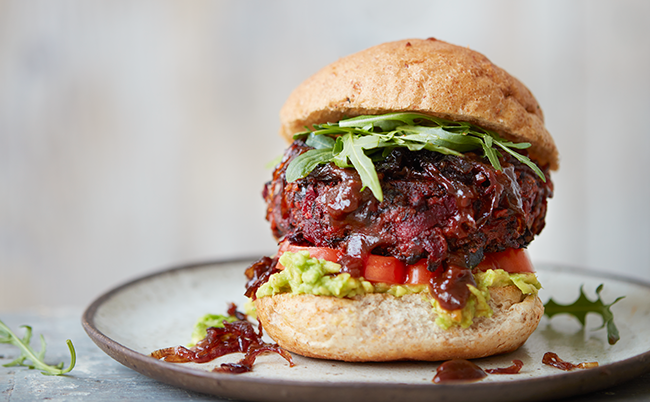World Vegan Month: Expert Shares 4 Tips to Improve Taste & Nutrition in Vegan Diets – vegconomist

According to a recent study* by Ipsos, approximately 46% of Brits aged 16-75 are considering reducing their intake of animal products in the future, with 58% now using plant-based meat alternatives in their diet.
Despite this, a survey** conducted by Bryant Research has revealed that 66% of people feel that plant-based alternatives do not match the taste of conventional meat, with a further 51% stating that taste and texture were the biggest reasons that they decided to reduce their use of meat alternatives.
A healthy diet might meet all our nutritional requirements – but it’s also important for consumers to enjoy what they eat. The taste and texture of foods are key, especially when using plant-based meat alternatives.
With this in mind, Kristina Vervoorst, Marketing Manager at Ohly, shares her insights into how you can improve taste and texture in a plant-based diet in the following guest post.

Unlock flavour potential with seasonings
Often overlooked, one of the secrets to enhancing vegan dishes is using the right herbs and spices. You can bring lighter, more vibrant flavours to your dish by simply incorporating fresh herbs like basil, thyme, parsley, and coriander.
If you’re looking for more depth of flavour, that’s where spices come in. Spices like paprika and cumin (or nutmeg and cinnamon for desserts) can help to enhance the depth of your dish.
Another ingredient that serves to intensify the taste is yeast extract. It has a distinctive savoury, meaty flavour known as umami, which is also found in meats, mature cheese, and ripe tomatoes. This is what makes yeast extract particularly useful in vegan and vegetarian dishes to really bring out the flavour of your recipe and deliver a more meaty, savoury essence to your meals.

Your cooking methods matter
The way you cook your food will have a huge impact on the overall taste and texture of your meal. For example, grilling is likely to impart more of a smokey essence which is great for enhancing meat-like flavours. Meanwhile, roasting your vegetables instead of frying them is a brilliant way to bring out the natural sweetness.
Frying or sauteing with a mix of onion and garlic flavours, on the other hand, will unlock more layers of flavour. For those aiming to keep as much nutrients in their meal as possible, steaming vegetables retain vital micronutrients.

For a vegan diet which relies heavily on the use of fruits and vegetables for all its vitamins and nutrients, it is especially important to consider what is in season at different points throughout the year.
Produce that is in season has long been considered to taste better. This is mainly because produce that isn’t in season will likely have been imported so it would be picked early, cooled, and heated – a process which reduces the overall flavour.
Don’t be afraid to mix it up
Diversity is the cornerstone of a balanced diet – not only when it comes to the nutritional element, but also in incorporating a wide variety of tastes and textures to avoid feeling ‘bored’ by your options.
You can do this by exploring new or different vegetables, trying out different meat alternatives, cooking your foods in different ways, and combining different flavours to widen the range of your dishes.
Ishani Rao, Conservation Doctor and Climate Activist at Plant-Based Health Professionals said, “Eating a plant-based diet is a brilliant way to reduce pressure on our food and energy systems in order to sustain the growing population. It’s as simple as feeding plants, grains, legumes, water, and soy directly to humans rather than to livestock, and reducing levels of polluting waste products.
“Utilising meat alternatives such as seitan, soya, tempeh, tofu, jackfruit, mushrooms, and lentils are lower emitting yet nutritious substitutes for traditional recipes,” she adds.
*https://www.ipsos.com/en-uk/almost-half-uk-adults-set-cut-intake-animal-products
**https://bryantresearch.co.uk/wp-content/uploads/2023/10/What-We-Know-aBout-UK-Plant-Based-Meat-Consumers.pdf




